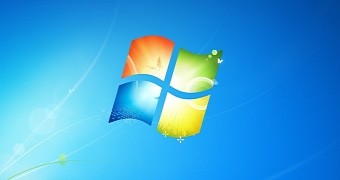The time has come for Windows 7. After so many years of support, the operating system has stopped receiving not only security updates from its parent company but also the official support for the world’s number one desktop browser.
Google Chrome 110, which is just around the corner, will be the first version of the application that will no longer run on Windows 7.
Windows 7 was released in 2009, and it rapidly became Microsoft’s big superstar. It was just what Microsoft needed after the Windows Vista disaster, and in many ways, it helped Windows rebecome the operating system that users loved.
Windows 7 eventually secured the number one position in the operating system world, so when Microsoft decided to pull it, quite a lot of devices out there were still running it. It all happened in January 2020 when Windows 7 exited support, meaning that Microsoft stopped rolling out new security updates for the operating system.
At that point, Windows 7 was retired for home users, but companies that still wanted to get additional support could do so as part of the ESU program. As per Microsoft’s typical policy, the Extended Security Updates program provided paying customers with three extra years of support – one monthly rollup went live every month as part of the Patch Tuesday cycle.
In January this year, however, Windows 7 was ready to give us the final goodbye. The operating system exited the ESU program, so right now, it’s abandoned once and for all. Not even paying customers would be provided with security updates, as the ESU program only provides out-of-support operating systems for a maximum of three years.
But in addition to security updates from Microsoft, Windows 7 is also losing the Google Chrome support. Chrome 109, which shipped in January, was the last version to support Windows 7.
Google Chrome 110, which is projected to go live on February 7, will no longer run on Windows 7, as it’ll only support Windows 10 or later. Windows 8.1 is no longer supported either, so Google Chrome is now leaving these old OS versions behind completely.
“Chrome 109 is the last version of Chrome that will support Windows 7, Windows 8/8.1, Windows Server 2012, and Windows Server 2012 R2. Chrome 110 (tentatively scheduled for release on February 7th, 2023) is the first version of Chrome that requires Windows 10 or later. You’ll need to ensure your device is running Windows 10 or later to continue receiving future Chrome releases. This matches Microsoft's end of support for Windows 7 ESU and Windows 8.1 extended support on January 10th, 2023,” Google announced.
Needless to say, if Google Chrome is installed on a Windows 7 devices, the browser will continue to run properly. However, the lack of further updates can’t be good news. Because new versions can no longer be installed on Windows 7, and security problems that would be found in Google Chrome would just remain unpatched, leaving Windows 7 devices even more exposed to potential attacks.
Google says there’s only one way to deal with the whole thing: upgrade to Windows 10 or Windows 11, the two operating systems that continue to receive support from Microsoft. As such, Google Chrome can be updated on these OS versions as well, so users will be able to install Chrome 110 (which goes live in early February) and the later releases.
“Older versions of Chrome will continue to work, but there will be no further updates released for users on these operating systems. If you are currently on Windows 7 and Windows 8/8.1, we encourage you to move to a supported Windows version to ensure you continue to receive the latest security updates and Chrome features,” Google explained.
Of course, not a lot of devices are still running Windows 7 devices, but those that do are finally losing one of the best apps in the world.

 14 DAY TRIAL //
14 DAY TRIAL //